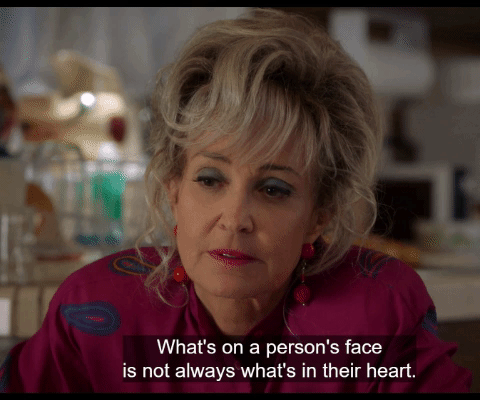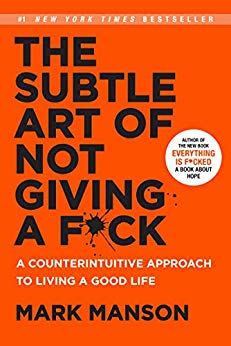As someone in pursuit of understanding and conquering personal development feats, whatever stands between me and my being highly productive, is an issue. Cognitive and behavioral productivity results are just not that visible with the naked eye. If you do 100 planks for 30 days, you’ll have your muscles, without a shadow of a doubt, visibly developed, but you won’t see anything after you’ve taken cold showers for 30 days. No sticks and carrots there.
So I’m very interested in dealing with invisible roadblocks like this annoying little thing called cognitive dissonance. Apparently, everybody is talking about it. Listen carefully at minute 1:12 in the video below; even Comedy Central sorta got the gist.
What the Heck is Cognitive Dissonance Then
As I was saying, this pesky pest is responsible for the psychological discomfort you feel when you hold two opposite attitudes towards the same concept. For example, you hate hurting animals but eat meat, or you generally enjoy something that’s bad for you – you like it, but you also dread the consequences – enter smoking.
It’s also a fancy word for the guilt you feel when you want to be mad productive but also need a break.
What our bodies and our minds lean towards is a state of harmony and difficult decisions often disrupt this harmony. The feeling you’re having when experiencing this disruption is called cognitive dissonance.

In other words, cognitive dissonance is a sort of drama button casually pushed for us when life isn’t complicated enough. Check out Ruth’s explanation to Nadia (from the smashing Netflix hit, Russian Doll) about accepting death – new cultural reference for how to put up with the cognitive dissonance of facing death:
“- Hey Ruth, if you were going to die today would you be ready for it? Like would you feel at peace with your life?
– Yes and no.
– So how do you get to just the yes?
– You don’t. You see holding two incompatible ideas in your head at the same time and accepting both of them, well, that’s the best of being human. Yes, no, good, bad, life, death.”
And since we’re throwing around tv shows references, here’s one from Young Sheldon:
Mind you, while this is mostly to express how much I love the show it’s also here to convey the idea that when people feel the discomfort of cognitive dissonance, they might not show it.

See a common denominator? People usually feel that they can’t do anything about cognitive dissonance. You don’t “get to just the yes,” you don’t instantly align “what’s on your face” with what’s in your heart.
But, as all therapists like to say – sooner or later, whatever you’re trying to keep bottled up inside will come out one way or another. We won’t mention the ugly serial killer type scenarios, let’s instead talk about the inspiring, chicken soup for the soul ones like turning vegan and saving the lives of God knows how many animals on this planet.
Or if you’d rather not and got the point but still want to know how to deal the heck out of what you feel inside when you’re at an emotional crossroad I got the answers for you.
How to Make Difficult Decisions Hurt Less
1. Create Your Own Reasons
Let me start by summarizing Ruth Chang’s advice (video below) on how to deal with hard choices. She explains that, when we give reasons to a choice we make rather than accepting reasons given TO US, then we’re wholeheartedly accepting our choices. We’re supporting the reasons we’re creating and forget about the “voice of others,” as the late Steve Jobs once said.
So what is she saying? To make my own reasons for quitting smoking? Well, yes, elementary, my dear Watson! The reasons I quit smoking 10 years ago (and started smoking again 1 year ago – I’ve had my reasons – no pun intended) were very much personal. I thought of nicotine as being a manipulative shrew driving me into spending my then parents’ money, into smelling like an ashtray, into accumulating tartar on my teeth. Grossed you out already? I like to be in charge of my destiny, and it felt like nicotine was competing with me for that title. Not a chance. Goodbye smoking. I won that battle for nine years, okay!
2. Or Turn Billionaire
You might think successful people are experts at making tough decisions. After all, they
3. Don’t Give a Damn
Success comes in many shapes and forms. If in your opinion success is making
Yes, Charles Bukowski. A nobody, a failure by all standards until his fifties when an editor took a liking in him and made him mad famous and rich. How is this fella going to help you deal with the harsh effects of making tough decisions? Well, Captain Nobody here mastered letting things pass by. The guy was unapologetically himself. And Mark Manson, the author of The Subtle Art of Not Giving
4. Learn an Instant Relaxation Technique
Some of the stuff you feel when you don’t know what to do – stay true to yourself or conform to a majority’s standard – is just natural psychological inertia. This feeling is a natural reaction we feel more often than we should.
Imagine being in one of Solomon Asch’s conformity experiments or worse yet, in one of Stanley Milgram’s obedience experiments and having to decide what’s morally acceptable vs. what’s asked of you from an authority figure who apparently knows better.
And this type of decisions are not kept in the realms of academic studies, this is real life. How often do people ask themselves “should I stay at this job that pays the bills or
So again how DO we turn down the immense heat coming from difficult decisions – other than turning rich in a gazillion years or by chance and other than letting things pass by and not giving a rat’s ass? We learn to instantly relax by consciously breathing for one minute. Just one minute a day.
Sixty seconds of drawing your attention towards your breath and being aware of the process of breathing will calm you down and get you back to a more balanced state of mind. You’ll be able to think clearly, get a more intuitive answer instead of a fear-based one, and you’ll be able to be more creative. What’s creativity got to do with cognitive dissonance and decision making? A whole lot. This is something specialists don’t emphasize enough and it’s also a topic for another article. For now rest assured, learning to relax on demand helps. Just do it!
5. Ask for help
I know you productive people want to solve it all by yourselves, takes one to know one, but ye’ can’t! This world and everything wonderful in it did not build itself, you were not conceived by one single person, you might love DIY but let’s face it, how much of it is it really just you and you alone?
Go to people who are understanding, kind, considerate, people who are sincere, who admit mistakes and focus on solving rather than retaliating or feeling sorry for themselves. If you don’t know her already, at least watch or listen to this Esther Perel talk below and learn to cultivate relationships intelligence.
Invest more in making your relationships stronger, tighter. Did you know your relationships are the #1, most important factor in your happiness? If you don’t believe me, read on to this longitudinal study conducted throughout a jillion years about how having close positive relationships is your cure-all, your philosopher’s stone.
For the record, did you also know your friends are actually the #1 agent that is making you famous? The study mentioned in the previous link found that for artists to be successful, it might be more important to make friends than produce novel art.
Wrapping it all up
Now once again, if you find yourself caught between a rock and a hard place, you know you’re not into BDSM and would rather calm the feeling down, let me sum up the whole how to deal with cognitive dissonance stuff I just said above:
#5 ask for help,
#4 learn to relax at a snap of a finger,
#3 turn to your friends,
#2 turn billionaire,
#1 create your personal reasons.
We look forward to your comments (unless it’s hate guff – as a productivity fanatic I already hate myself enough for there to be two of us). And we thrive on compliments. If you think this stuff is worth sharing, that’s a compliment. Push the buttons on your left and share away. Thanks so much for reading!

Executive editor, project manager, clinical psychology master’s graduate with a life-long obsession for personal development and mind hacking, inspirational quotes, and, productivity tools.
SUBSCRIBE TO GET NEWS
ABOUT
YOUR GROWTH INSPIRATION HUB

